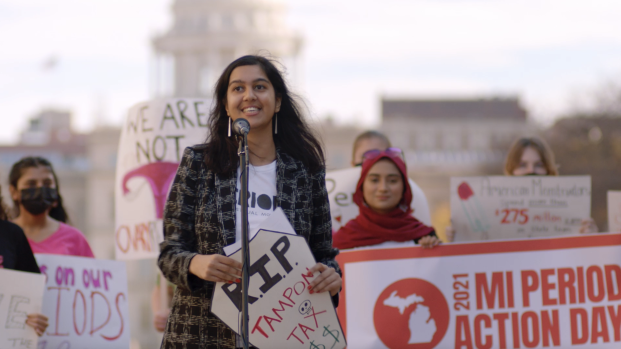
The monthly period affects half of the world’s population – and yet it is still a taboo. The everyday lives of menstruating people thus remain invisible: regular discomfort, severe pain, and the costs of hygiene products and medication. If girls and women cannot afford these things, they stay at home instead of going to school or work. This fosters gender inequality.
By Lisa Paping
1. About 300 million women and girls are menstruating right now. A woman loses 60 millilitres of blood per cycle on average. That corresponds to about half a cup of coffee.
2. A woman will use 17,000 menstrual products in her lifetime. On average, this costs a woman in Germany 2,600 euros. The high tax on hygiene products is an additional burden on women. In Germany, the so-called ‘tampon tax’ was only lowered in 2020. Prior to that, menstrual products had been taxed at 19 per cent – the tax rate for luxury goods – and not at the usual rate of 7 per cent for basic necessities. Kenya, India and Canada have abolished taxes on menstrual products completely
3. Around 1.25 billion women and girls do not have access to clean toilets during their periods, and 500 million menstruating people worldwide do not have access to hygienic menstrual products. This is a problem. Because if women and girls cannot afford period products, they stay at home instead of going to school, work or doctor's appointments. This prevents them from participating equally in society.
4. Women without access to menstrual products lose up to five years of schooling!
In many societies, the female period is still a taboo. This leads to the exclusion of menstruating people from communities all over the world as they are considered unclean and unhygienic.
Action Against Hunger trains community health workers who act as role models for young girls and educate them about important health issues. We improve access to clean water and build latrines and sanitation facilities to make going to the toilet as safe and hygienic as possible. We provide training for women and men on controlled family planning options. And as part of our emergency response, we distribute hygiene kits that contain menstrual products such as sanitary pads.


